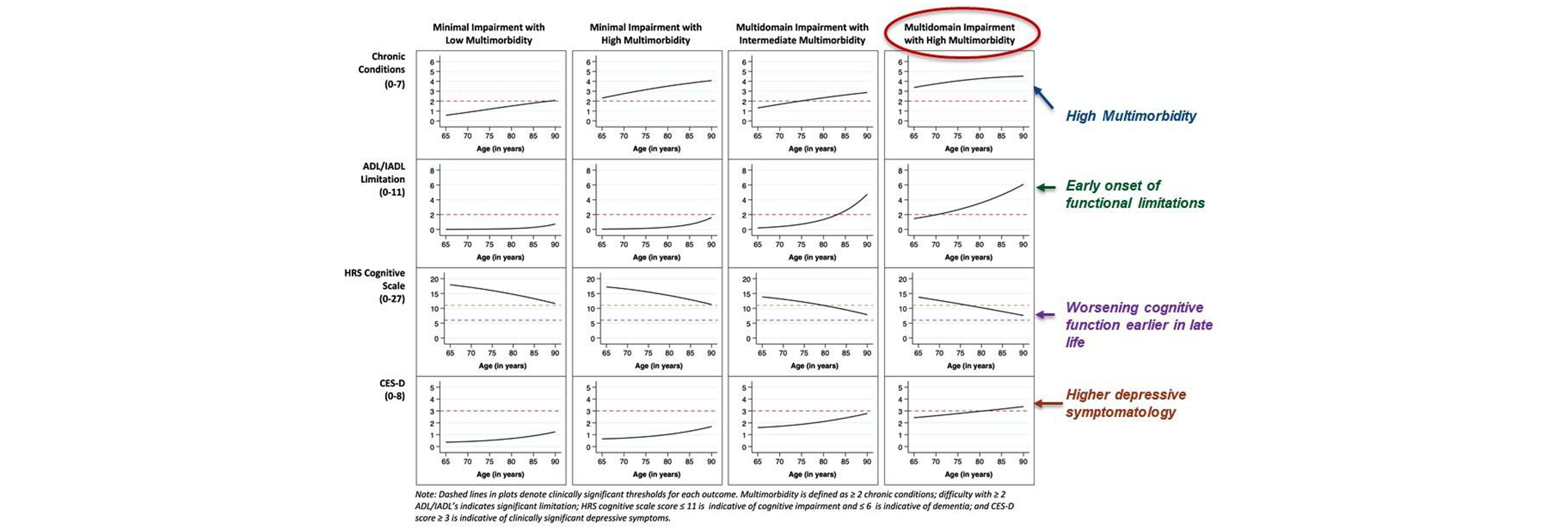
Overview
Project 1 leverages both LC legacy and external data sources to better understand the contexts in which factors influence longevity and age-related health trajectories.
Aim 1 focuses on LC Legacy Cohorts, expanding harmonized data by incorporating whole genome genotype data and longitudinal health measures.The project integrates chronic conditions and mortality information from Centers for Medicare and Medicaid Services (CMS) through the NIA-LINKAGE program. This expanded dataset enables analysis of how various factors associate with longevity across different contexts, including sex and genetic ancestry.
Aim 2 replicates and expands Aim 1 studies through formal collaborations and publicly accessible data resources. Key partnerships include the Health and Retirement Study (HRS), Arivale study, Young Finns Study (YFS), Danish Health Registry (DHS), UK Biobank (UKB), and the Study of Muscle, Mobility and Aging (SOMMA).
Aim 3 develops multicomponent predictive models for longevity and aging trajectories by leveraging both known and newly-identified longevity-associated factors. The performance and utility of the models are assessed across diverse populations and clinical subgroups, including under-represented groups, specific genetic backgrounds, and various multi-morbidity profiles.

Co-Leads
Oregon Health and Sciences University
Ana R. Quiñones, PhD is a Professor in the Department of Family Medicine at Oregon Health & Science University (OHSU). Her research focuses on addressing racial and ethnic disparities in aging trajectories and evaluating health care delivery approaches to improve the management of multiple chronic conditions, including dementia. She leads several NIH and foundation-funded studies that investigate longitudinal changes in multimorbidity and disability among diverse groups and safety-net patients using large population-based survey, clinical, and Medicare claims data.
Institute for Systems Biology
Noa Rappaport, Ph.D., is a Research Associate Professor at the Buck Institute for Research on Aging, Chief Data Officer at Phenome Health, and Principal Scientist at the Institute for Systems Biology. She leads research in computational biology and multi-omic analysis, using and developing methods to study complex biological systems exploring aging biology, Alzheimer’s disease, and metabolic health through multi-omic data integration.
Other Key Personnel
San Francisco Coordinating Center at the California Pacific Medical Center Research Institute
San Francisco Coordinating Center at the California Pacific Medical Center Research Institute
Team Members
